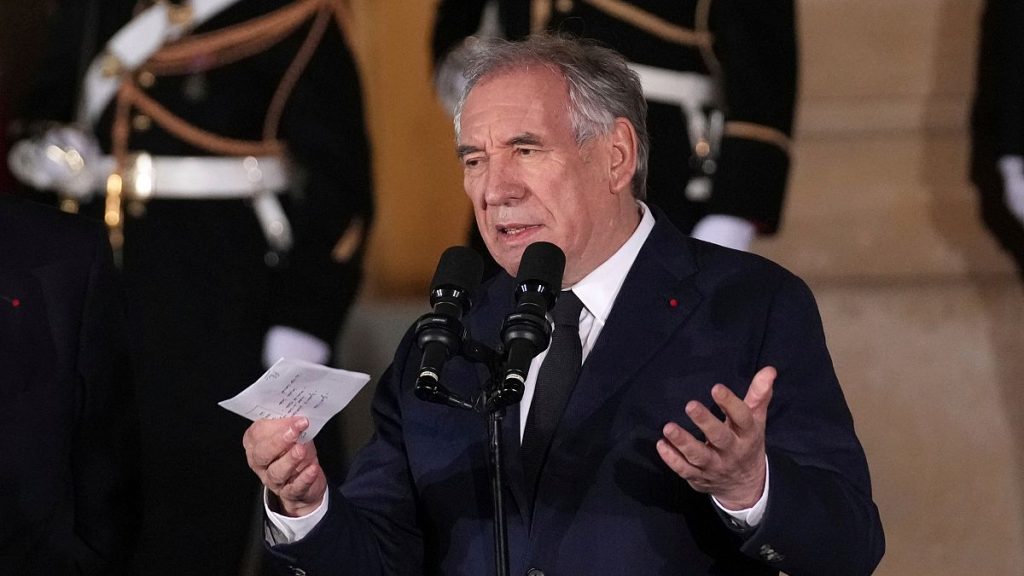François Bayrou, France’s newly appointed Prime Minister, faces the daunting task of stabilizing a nation embroiled in political turmoil. His cabinet, the fourth in under a year, is comprised of a mix of established figures and former ministers, predominantly from conservative and centrist backgrounds. This strategic selection reflects Bayrou’s attempt to navigate the complex political landscape and secure parliamentary support, particularly for the crucial 2025 budget. The cabinet includes prominent figures such as Elisabeth Borne, the former Prime Minister, now heading the Ministry of Education, and Jean-Noël Barrot, who retains his position as Foreign Affairs Minister. Gérald Darmanin transitions from Interior Minister to Justice Minister, while Bruno Retailleau remains at the helm of the Interior Ministry. The inclusion of Manuel Valls, a former Prime Minister under François Hollande, as Minister for Overseas Territories, adds further experience to the team. The retention of Sébastien Lecornu as Minister of the Armed Forces and Rachida Dati as Minister of Culture suggests a degree of continuity in these key areas.
Bayrou’s primary objective is to steer the government through the current political impasse and pave the way for new parliamentary elections next summer. The political instability stems from President Emmanuel Macron’s call for snap elections following his centrist party’s disappointing performance against the far right in the EU elections. This resulted in a deadlocked parliament, with three distinct blocs unable to find common ground. The immediate challenge for Bayrou’s government is to secure approval for the 2025 budget, a critical step in restoring stability and demonstrating the government’s ability to function effectively. The previous Prime Minister, Michel Barnier, was ousted after attempting to bypass parliament on the social security budget, highlighting the sensitivity of budgetary matters and the importance of securing parliamentary support.
Bayrou’s cabinet appointments have been met with significant criticism, particularly regarding the perceived influence of the far right. Accusations of concessions to the far right have fueled opposition and raised concerns about the government’s direction. Xavier Bertrand, a prominent conservative figure, publicly declined a position in the cabinet, citing his refusal to participate in a government formed with the approval of Marine Le Pen. This high-profile rejection underscores the deep divisions within the political landscape and the challenges Bayrou faces in building consensus. The Socialist Party leader, Olivier Faure, also condemned the cabinet appointments, labeling them a “provocation” and criticizing Bayrou’s failure to negotiate with more moderate parties like the Socialists to form a broader coalition.
The hard-left France Unbowed party (LFI) has already announced its intention to file a no-confidence vote against the new government, further complicating Bayrou’s path. This preemptive move signifies the uphill battle the Prime Minister faces in securing parliamentary support and highlights the fragility of his position. The government’s ability to survive the no-confidence vote will be a crucial test of its stability and its capacity to govern effectively. The upcoming confidence vote, scheduled for when the National Assembly reconvenes on January 13th, will be a critical moment for the new government. The outcome of this vote will determine whether Bayrou can maintain control and implement his agenda or whether France will be plunged into further political uncertainty.
The composition of the cabinet reflects Bayrou’s attempt to strike a balance between experience and fresh perspectives. The inclusion of former ministers and established figures provides a degree of continuity and expertise, while the appointment of new faces aims to inject fresh energy and ideas. However, the political landscape remains deeply fragmented, and the government’s ability to function effectively will depend on its capacity to navigate these divisions and secure the support of a majority in parliament. The first Council of Ministers meeting, scheduled for January 3rd, will provide an opportunity for the new cabinet to begin addressing the pressing challenges facing the nation.
The success or failure of Bayrou’s government will have significant implications for France’s political stability and its ability to address critical economic and social issues. The Prime Minister faces the daunting task of uniting a divided nation, navigating a complex political landscape, and restoring confidence in the government’s ability to govern effectively. The upcoming confidence vote will be a pivotal moment, determining whether Bayrou can secure the support necessary to implement his agenda and bring stability to a nation grappling with political uncertainty. The coming months will be crucial in determining whether France can emerge from this period of political turmoil and chart a course towards greater stability and progress.

